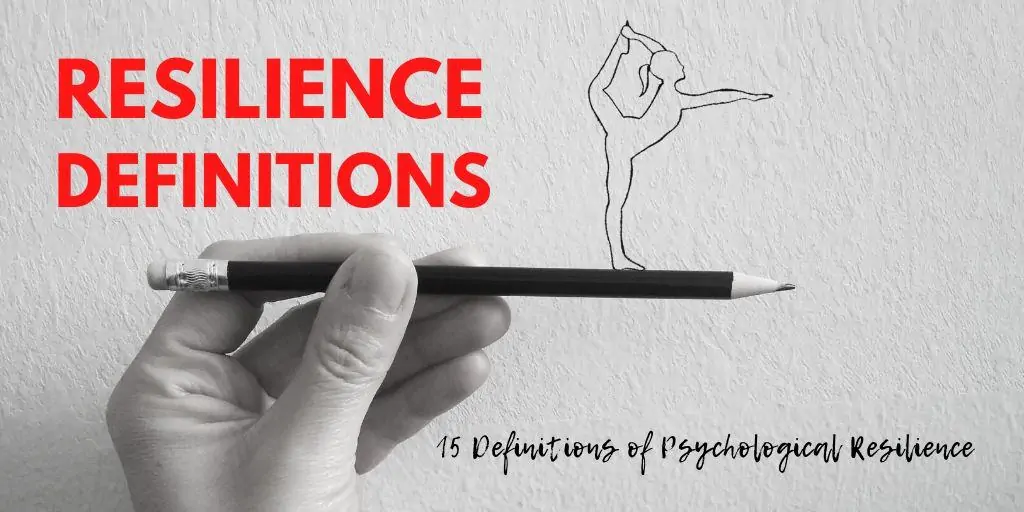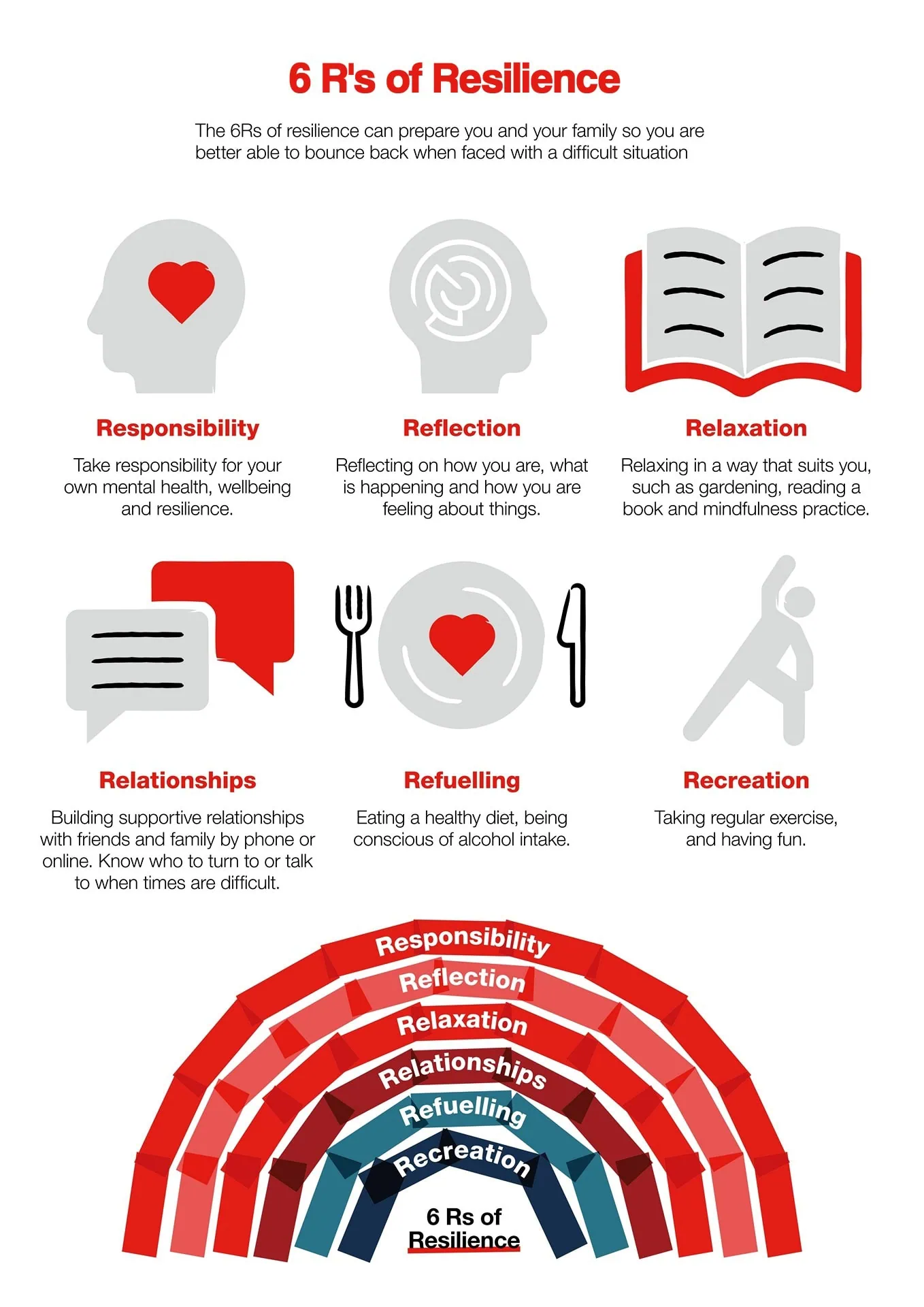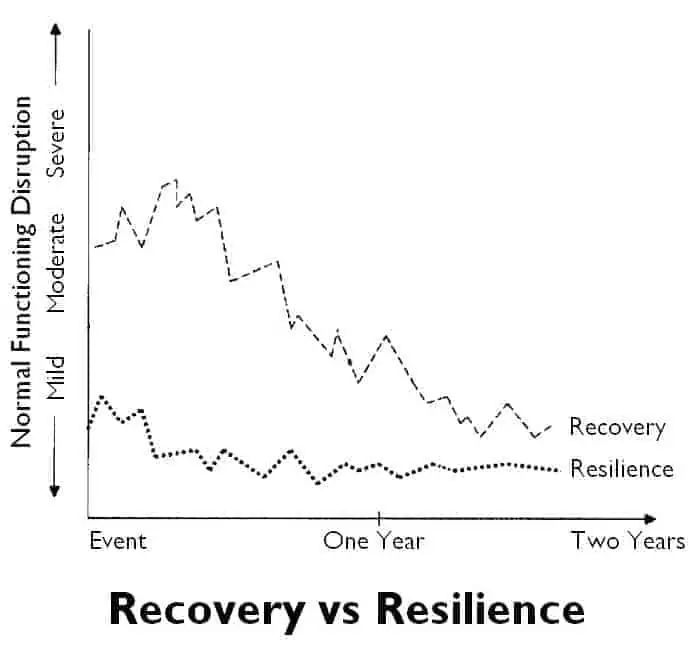Today's Saturday • 12 mins read
The road to glory has potholes of pain. What gets you through is resilience.
Being resilient means to have faced adversity, fought it through tears, suffered, and conquered it with mental strength.
The word resilience originates from the Latin verb resilire, or “to leap back” or “to recoil.”
Hero’s Journey, a popular form of story structure (seen in films like The Lion King, Star Wars, Avatar, and The Matrix) derived from Joseph Campbell’s book The Hero With A Thousand Faces, is actually a story of resilience.
15 Resilience Definitions From Psychology (Each In A Sentence)
In psychology, resilience generally refers to the set of mental processes that one must go through to overcome a traumatic event. It is the ability of people to bounce back from adversity and grow.
Psychological literature proposes many definitions of human resilience.
I searched through 50+ research papers to pick out the following 15 brilliant definitions of Psychological Resilience, each in one sentence:

1. Resilience: The process of adapting well in the face of adversity, trauma, tragedy, threats and even significant sources of stress. — American Psychological Association. Building Your Resilience
2. Resilience: The ability of adults in otherwise normal circumstances who are exposed to an isolated and potentially highly disruptive event such as the death of a close relation or a violent or life-threatening situation to maintain relatively stable, healthy levels of psychological and physical functioning, as well as the capacity for generative experiences and positive emotions. — George A. Bonanno. Loss, Trauma, and Human Resilience
3. Psychological resilience can be defined as an individual’s ability to withstand and adapt to adverse and traumatic events. — Walker, Pfingst, Carnevali, Sgoifo, Nalivaiko. In The Search for Integrative Biomarker of Resilience
4. Resilience: Positive adaptation in the context of significant challenges, variously referring to the capacity for, processes of, or outcomes of successful life-course development during or following exposure to potentially life-altering experiences. — Masten, Cutuli, Herbers, Reed. Resilience in Development
5. Resilience: The capacity of a dynamic system to adapt successfully to disturbances that threaten system function, viability, or development of that system. — Ann S. Masten. Resilience in Development – Early Childhood As A Window of Opportunity
6. Resilient people… possess three characteristics: a staunch acceptance of reality; a deep belief, often buttressed by strongly held values, that life is meaningful; and an uncanny ability to improvise. — Diane L. Coutu. How Resilience Works
7. In the context of exposure to significant adversity, whether psychological, environmental, or both, resilience is both the capacity of individuals to navigate their way to health-sustaining resources, including opportunities to experience feelings of well-being, and a condition of the individual’s family, community and culture to provide these health resources and experiences in culturally meaningful ways. — Michael Ungar. Resilience Across Cultures
8. Resilience comprises a set of flexible cognitive, behavioral and emotional responses to acute or chronic adversities which can be unusual or commonplace. — Michael Neenan, Developing Resillience
9. Resilience is the capacity and dynamic process of adaptively overcoming stress and adversity while maintaining normal psychological and physical functioning. — Gang, Adriana, Hagit, Joanna, Solara, Dennis, Aleksander. Understanding Resilience
10. Resilience can be viewed as a defense mechanism, which enables people to thrive in the face of adversity, and improving resilience may be an important target for treatment and prophylaxis. — Davydovac, Stewart, Ritchie, Chaudieu. Resilience and Mental Health
11. The key messages to emerge from the literature are that: most definitions are based around the two core concepts of adversity and positive adaptation, resilience is required in response to different adversities ranging from ongoing daily hassles to major life events, and positive adaptation must be conceptually appropriate to the adversity examined in terms of the domain assessed and the stringency of criteria used. — Fletcher and Sarkar. Psychological Resilience
12. The scope of different definitions vary from quite narrow conceptualizations that focus exclusively on recovery from trauma, through to wider definitions that see resilience as an ongoing protective capability that enables not only reactive recovery but also proactive learning and growth through conquering challenges. — Robertson and Cooper. Resilience
13. Resilience is the integrated adaptation of physical, mental and spiritual aspects in a set of “good or bad” circumstances, a coherent sense of self that is able to maintain normative developmental tasks that occur at various stages of life. — Glenn E Richardson. The Metatheory of Resilience and Resiliency
14. Resilience is the product of a number of developmental processes over time, that has allowed children experience small exposures to adversity or some sort of age-appropriate challenges to develop mastery and continue to develop competently. — Yates, Egeland, Sroufe. Rethinking Resilience
15. The characteristics of resilient individuals: …the ability to be happy and contented, with a sense of direction and purpose; the capacity for productive work and a sense of competence and environmental mastery; emotional security; self-acceptance; self-knowledge; a realistic and undistorted perception of oneself, others, and one’s surroundings; interpersonal adequacy and the capacity for warm and caring relating to others and for intimacy and respect; confident optimism; autonomous and productive activity; interpersonal insight and warmth; and skilled expressiveness. — Eva Klohnen. Conceptual Analysis and Measurement of The Construct of Ego-Resiliency
Resilience Definitions by Positive Psychologists
In The Oxford Handbook of Positive Psychology, Shane Lopez and Charles “Rick” Snyder write that, in their research over four decades, they found that resilience means “positive adaptation during or following significant adversity or risk.”
Martin Seligman, the Father of Positive Psychology, says:
- How human beings react to extreme adversity is normally distributed. On one end are the people who fall apart into PTSD, depression, and even self-harm.
- In the middle are most people, who at first react with symptoms of depression and anxiety but within a month or so are, by physical and psychological measures, back where they were before the trauma. That is resilience.
- On the other end are people who show post-traumatic growth. They, too, first experience depression and anxiety, often exhibiting full-blown PTSD, but within a year they are better off than they were before the trauma.
Dictionary Definitions of Resilience
- Resilience is the ability to be happy, successful, etc. again after something difficult or bad has happened (The Cambridge Dictionary).
- Resilience is the ability to recover from or adjust easily to misfortune or change (The Merriam-Webster Dictionary).
- Resilience is being able to withstand or recover quickly from difficult conditions (The Oxford Dictionary of English).

Resilience Quotes From Psychology
“We are all born with an innate capacity for resilience, by which we are able to develop social competence, problem-solving skills, a critical consciousness, autonomy, and a sense of purpose.”
— Cesarone, B. (1999). Fostering the Resilience of Children
“The results suggest that resilience had a stronger effect on professional skills than the latter had on resilience.”
— Palma-García, M., Jacinto, L., & Hombrados-Mendieta, I. (2018). Reciprocal Relationship Between Resilience and Professional Skills
“Resilience does not, however, seem to be immutable—it can be learned.”
— Decastro, R., Sambuco, D., Ubel, P., Stewart, A., & Jagsi, R. (2013). Batting 300 Is Good: Perspectives of Faculty Researchers and Their Mentors on Rejection, Resilience, and Persistence in Academic Medical Careers
“As resilience can be acquired at any stage of life, irrespective of age and disease status, there is a need for training to improve resilience among patients through educational programs.”
— Gheshlagh, R., Sayehmiri, K., Ebadi, A., Dalvandi, A., Dalvand, S., & Tabrizi, K. (2016). Resilience of Patients With Chronic Physical Diseases: A Systematic Review and Meta-Analysis
10 Resilience Synonyms
- Grit
- Tenacity
- Fortitude
- Endurance
- Toughness
- Robustness
- Resoluteness
- Perseverance
- Determination
- Resourcefulness
Resilience In Psychology: APA On Resilience
According to the American Psychological Association (APA), resilience is “the process of adapting well in the face of adversity, trauma, tragedy, threats, or significant sources of stress.”
These sources of stress can be family and relationship issues, major health problems, or career and financial difficulties.
APA further says, “As much as resilience involves “bouncing back” from these difficult experiences, it can also involve profound personal growth.”
And then adds, “While these adverse events … are certainly painful and difficult, they don’t have to determine the outcome of your life. There are many aspects of your life you can control, modify, and grow with. That’s the role of resilience.”
Resilience = Recovering + Sustaining + Growing
What are the 7 skills of resilience?
The 7 skills of resilience can be:
- Flexibility and tolerance: The ability to adapt to change and uncertainty, and to tolerate difficult emotions.
- Optimism and hopefulness: The belief that things will get better, and the ability to see the silver lining in difficult situations.
- Self-efficacy and autonomy: The belief in one’s ability to cope with challenges and achieve goals, and the ability to take charge of one’s life.
- Empathy and self-compassion: The ability to understand and care about the feelings of others, and the ability to be kind and understanding to oneself.
- Teamwork and reaching out for support: The ability to work well with others, and to ask for help when needed.
- Emotional regulation and impulse control: The ability to manage one’s emotions in a healthy way, and to resist the urge to act impulsively.
- Critical consciousness and realistic goal-setting: The ability to think critically about one’s circumstances, and to set goals that are achievable and meaningful.
Studies (Matheson & Robertson, 2016; Lopes, 2016; Masten & Cutuli, 2009; Cesarone, 1999) suggest that resilience skills can be categorized into:
- Personal characteristics (optimism, flexibility, self-worth),
- Social and organizational abilities (teamwork, good parenting, community resources), and
- Self-awareness and problem-solving skills (self-efficacy, autonomy, critical consciousness).
Resilience vs. Recovery
There’s a difference between recovery and resilience, though both are responses to a loss or trauma.
Recovery is marked by a temporary period of emotional instability (such as depression or PTSD) for a few months to years, followed by a gradual return to healthy functioning.
Resilience, whereas, is marked by maintaining relatively stable, normal levels of psychological and physical functioning throughout a negative life situation.

FAQs
What are the 7 Stages of Resilience?
1. Defensiveness: This is the initial stage of shock and denial. People may react with anger, sadness, or fear, and may try to avoid or minimize the problem.
2. Finding life balance while facing stress: This stage involves learning to cope with the stress of the situation. People may find ways to relax and de-stress, such as exercise, meditation, or spending time with loved ones. They may also develop new coping skills, such as problem-solving or time management.
3. Commitment: This stage involves making a commitment to overcome the challenge. People may set goals for themselves and develop a plan of action. They may also start to rebuild their lives and move forward.
4. Comeback: This stage is when people start to make progress. They may experience setbacks, but they are able to learn from them and keep moving forward.
5. Evaluation: This stage involves taking stock of what has been learned and accomplished. People may reflect on their strengths and weaknesses, and they may make changes to their lives to improve their resilience.
6. Meaning: This stage involves finding meaning in the experience. People may come to see the challenge as an opportunity for growth or to help others. They may also develop a new appreciation for life.
7. Building of self-positivity: This stage involves developing a positive self-image and sense of self-worth. People may focus on their strengths and accomplishments, and they may forgive themselves for their mistakes.
Can resilience be taught?
What are strategies for becoming more resilient?
1. Self-care and stress management techniques (e.g., exercise, meditation)
2. Setting realistic goals and taking steps to achieve them
3. Cultivating a positive mindset and practicing gratitude
4. Building social connections and support networks
5. Developing problem-solving and coping skills
6. Learning from past experiences and mistakes
7. Seeking professional help when needed
What are the determinants of resilience?
1. Social support and connectedness
2. Positive coping strategies and problem-solving skills
3. Optimism and a positive mindset
4. Self-efficacy and confidence
5. Emotional regulation and impulse control
6. Access to resources and opportunities
7. Adverse childhood experiences and trauma
These determinants were identified in studies on resilience among different populations, including street children in Haiti (Derivois & Cénat, 2020), people with spinal cord injury in Nepal (Bhattarai & Maneewat, 2017), and Syrian refugees in Jordan (Alduraidi & Dardas, 2020).
What does being resilient mean?
Why is resilience important?
Further Reading
- Resilient Leadership With Prof. Nancy Koehn
- How Do Remarkably Strong People Build Their Resilience
- Resilience Training: How to Master Mental Toughness & Thrive
- Reframing Resilience: It’s More Than Optimism (Positive Psychology)
Final Words
Resilience means making a comeback after a setback.
- Resilient people not only come out of adversities stronger but also often find meaning in the experience and grow from it.
- Resilience is not only about recovering but also about sustaining and growing.
It’s not that resilient people are immune to adversity. They can be deeply affected by a traumatic event, and suffer depression, distress, hypervigilance, and repetitive memories.
Despite those, they go about their daily lives, giving it their best. That is resilience.
• • •
√ If you liked it, please spread the word.
» You deserve happiness! Choosing therapy could be your best decision.
...
• Disclosure: Buying via our links earns us a small commission.

